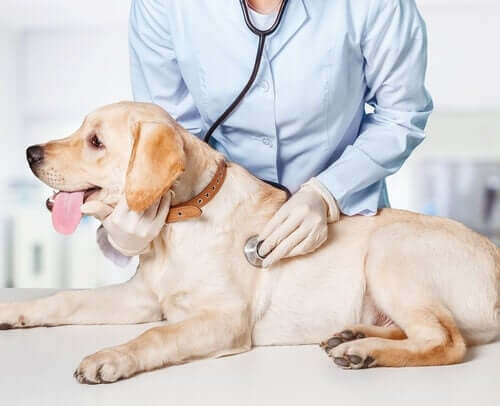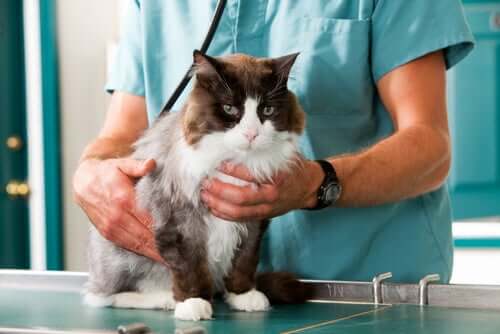What Happens at a Vet Check-Up?

Many people wonder what happens or should happen at a vet check-up. Clear up any doubts by reading this article – we’ll tell you what to expect!
What to do at a vet check-up
Create a record
When you first take your puppy to the vet, the vet will give you a record card that will hold information on your pet’s health and that needs to be filled in at every visit. At each visit, the vet will assess their general health. This consists of checking the date of the last check-up, deworming or any previous tests. They’ll also records if they’re suffering from any illnesses or undergoing treatment.

Its weight
Sometimes weight says a lot about the health of both a person and an animal. That’s why at every veterinary check-up your pet will be weighed and the weight will be noted on its record; being over and underweight are both as bad as each other.
Vital Signs
Also, body temperature and heart and respiratory rates are both checked and recorded at each check-up. It’s always a good idea to comfort your pet as body temperature is taken with a rectal thermometer. Your pet will feel very uncomfortable, so you need to stay close and reassure them, which will help them to stay still.
General review
Hair, skin, mouth, ears and eyes are parts of the animal’s body that can’t be overlooked, as they are sources of infection. These parts are most exposed to the outside world and therefore the most exposed to diseases. A thorough check-up of all of them, as well as an extensive examination of the eyes and their response to light, is crucial for monitoring and maintaining your pet’s health.
Body check
An important thing to do in any check-up is to feel your pet’s body. Checking the loins, belly, legs, bones and muscles will give the vet insight on the health of their hair, skin, internal organs or any abnormal lumps. A thorough touching will determine if there’s anything unusual that needs to be analyzed.
If you’re choosing a vet for your puppy, or need to find one for your pet, make sure you’re interested in building up a record and putting everything above into practice, as this will preserve your friend’s health. If you think your vet isn’t thorough enough, find another that is.
What if the vet check-up is for an emergency?
In addition to regular vet check-ups, there may be occasions when you need to take your pet in for an emergency. They may not feel well, or you notice something unusual about their behavior. How should the vet react then? There are questions that the vet will need to ask you; they have to take notes and include them in your pet’s record. These questions are:

- How long have they felt this way? You may not be able to tell him a specific time, but try to think of an approximate time.
- Has their behavior changed? When an animal is sick there can be very visible changes in its behavior; your vet should ask you detailed questions about this.
- Have they swallowed or eaten something? Choking, food poisoning or allergies could be the cause of your pet’s discomfort. This question is essential in any emergency vet check-up.
- Are they on any medication? Your vet needs to know of any medications your pet takes, so they can find the right treatment.
We hope that we’ve put your mind at ease about what should happen at a vet check-up. Always look for a vet that loves animals, and who cares by showing a personal interest in them. That way you’ll know that they’ll take good care of your pet and you’ll have peace of mind.
This text is provided for informational purposes only and does not replace consultation with a professional. If in doubt, consult your specialist.